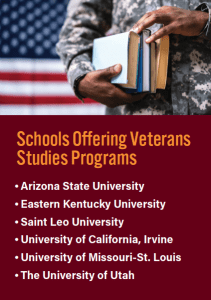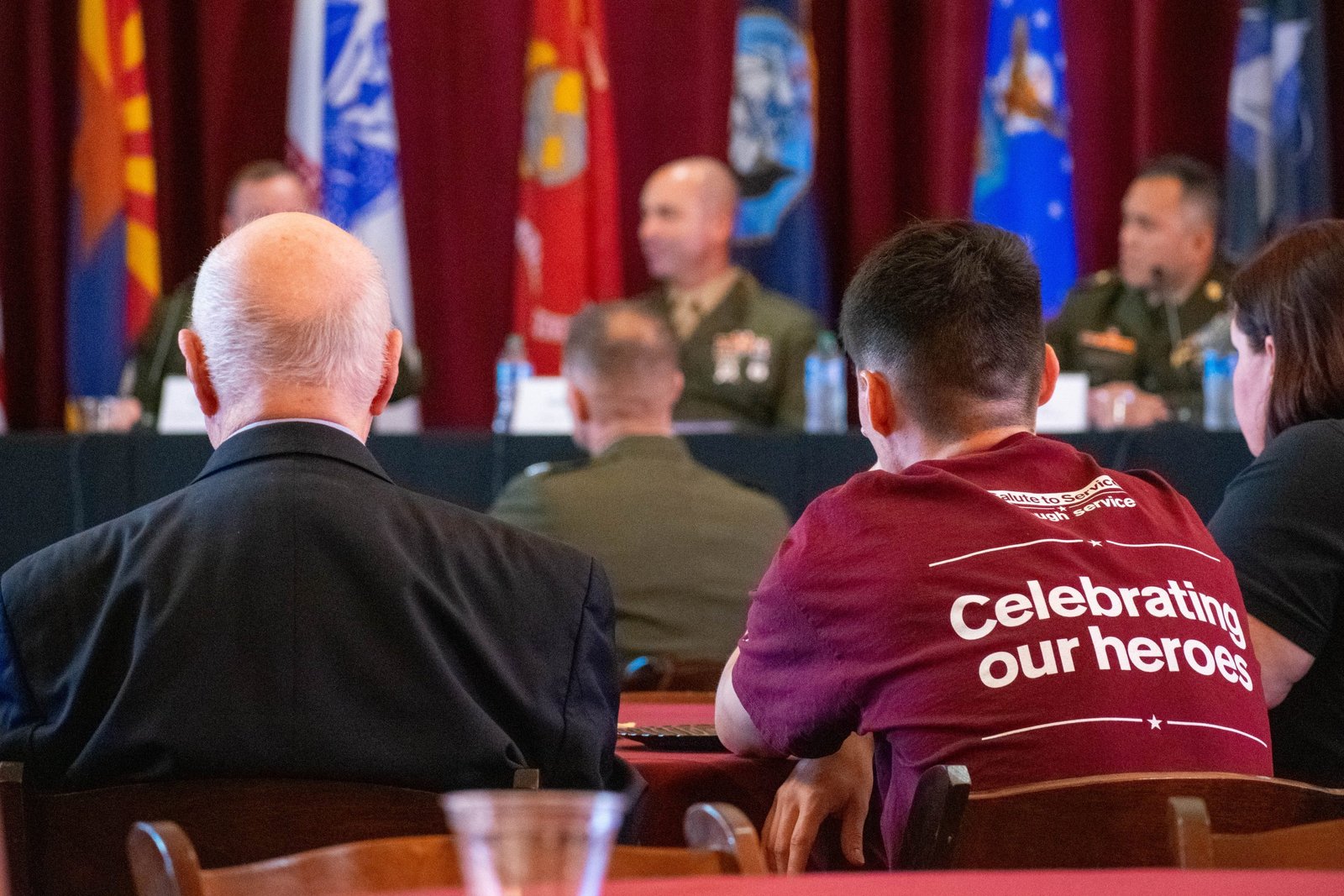Recognizing the profound impact of military history on global events, as well as the importance of understanding the experiences and contributions of those who have served, higher education institutions are increasingly creating and expanding military and veteran studies programs.
Such curricular offerings are essential for advancing the understanding of military and veteran populations across various contexts, including historical, cultural, psychological, and policy development (both national and global).
The demographics of veterans continue to change. For example, in 1980, they represented approximately 18% of the adult population, but the number dropped to approximately 6% by 2022, according to “The Changing Face of America’s Veteran Population,” a 2023 study by the Pew Research Center.
While this group is expected to become increasingly diverse, the U.S. Department of Veterans Affairs predicts a continued decrease in the number of living veterans over the next 25 years.
“Currently, we have a little over 18 million veterans in the United States and 1.3 million military service members. … The military is getting smaller, they’re getting more mobile, they’re getting faster, there’s better technology [and as a result] the education about them is also smaller,” says Wanda Wright, MBA, MPA, director of the Office for Veteran and Military Academic Engagement at Arizona State University (ASU).
This area of study offers a variety of career pathways with an interdisciplinary focus, such as criminal justice, social work, law, business, technology, health and sciences, education, and human resources.
Leading the charge with exemplary programs that include certificates, minors, and bachelor’s degrees, are Arizona State University, the University of Missouri-St. Louis (UMSL), and Eastern Kentucky University (EKU).
Arizona State University
In spring 2024, ASU launched the online and on-campus interdisciplinary applied military and veterans studies bachelor of arts degree. This program provides a comprehensive understanding of U.S. military history, political systems, national security, public policy, leadership, and military and veteran care.
The degree is built upon work toward the veterans, society and service certificate program, which currently requires 18 credits of theme-specific courses offered in fields such as communications, history, politics and global studies, and integrative social science, as well as a 3-credit internship.
An introduction to military studies course was developed through interviews with 10 veterans of varying eras, says Wright.
Following this overview, students can enroll in a variety of specialized classes, such as interdisciplinary approaches to conflict and war, military culture and American society, military theory and practice, and representations and self-representations of veterans in the media and the arts.
Although veterans and military service members have lived experiences that enhance their knowledge on these topics, the program provides additional insights and perspectives, Wright says. She also emphasizes the importance of educating civilian students about military populations to prepare them for future interactions in the workforce.
“We have this military and civilian divide that is really created on top of a mountain of unrealities,” Wright says. “Civilians think things about the military and they aren’t always true. … It’s important for civilians to understand the real stories about military service and about what it’s like to be a veteran after your service, and these classes support that work.”
University of Missouri-St. Louis
Through the Department of Sociology, students at UMSL may pursue a minor in veterans studies.— which encompasses a foundation course, a series of electives, and a capstone.— or a self-designed bachelor of interdisciplinary studies.
The 15-credit minor prepares students to work with and for veterans, and allows student-veterans to reflect deeply on their military experiences. The curriculum focuses on cultural, relational, institutional, and clinical understanding through the lens of veteran populations and military service.
Students interested in earning a bachelor’s degree on the topic can apply for the interdisciplinary studies program, which allows students to create their own 36-hour interdisciplinary major studying the veteran experience.
Elective courses include options such as Islamic philosophy, international law, psychology of trauma, social work and social issues, and crime and justice in a globalized world.
UMSL advisers and faculty provide direction for those enrolled in the program, enabling them to meet educational goals not offered by any other degree program at UMSL.
Students may further their expertise by participating in a supervised professional internship, service internship, or research.
Eastern Kentucky University
The Kentucky Center for Veterans Studies (KCVS) at EKU offers both a minor and university-level certificate in veterans studies. These programs are available through either in-person or fully online modalities.
The certificate — earned through 24 hours of coursework — is described by KCVS as a “deep exploration in veterans’ identities, cultures, and experiences,” and is ideal for students whose goal is to expand their knowledge of veterans through interdisciplinary learning opportunities.
As core competencies, the certificate requires that students complete an Introduction to Veteran Studies and either Veteran Identity Theory or completion of a veteran studies capstone. A wide variety of electives are available through fields like sociology, psychology, and English.
The minor in veterans studies at EKU was launched in 2010, and was the first offered in the nation. The program, which has an 18-credit requirement, is especially recommended for individuals pursuing “helping professions” that provide services directly to veterans and their families, such as psychology, social work, nursing, and occupational therapy.
Students enrolled in either program can connect with KCVS for further professional opportunities, including internships with community partners, research, and outreach program development or participation.




















